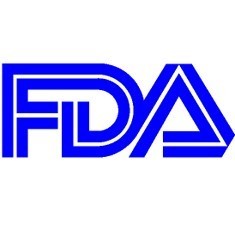The US Food and Drug Administration (FDA) has published draft guidance for industry for abbreviated new drug applications (ANDAs) and prior approval supplements (PASs) where the applicant is seeking approval of a new strength of the drug product.
This draft guidance describes what should be included in an ANDA and highlights serious deficiencies that may cause FDA to refuse to receive an ANDA. FDA states that refusals are usually as a result of incomplete ANDAs, resulting from omissions.
The draft guidance does not offer explicit guidance on minor deficiencies that may be found in an ANDA submission.
ANDA Submissions ― Refuse-to-Receive Standards (Draft Guidance)
Date: October 2013
http://www.fda.gov/downloads/drugs/guidancecomplianceregulatoryinformation/guidances/ucm370352.pdf
The need for such a guidance document became clear to FDA after the review of recent data, which showed that between 2009 and 2012 the Office of Generic Drugs (OGD) refused to receive 497 ANDAs. This accounted for 12% of all ANDAs submitted in 2009, 18% in 2010, 15.5% in 2011 and 9.4% in 2012.
In 2012, of the 100 ANDAs that the OGD refused to receive, 40 were refused because of serious bioequivalence deficiencies, 36 because of serious chemistry deficiencies, 13 because of format or organizational flaws, 6 because of clinical deficiencies, 4 because of inadequate microbiology (sterility assurance) information, and 1 because of an incorrect reference listed drug was cited.
The draft guidance outlines deficiencies that will result in the refusal to receive the ANDA. Just some of the reasons stated include:
- citing an incorrect or unfounded basis of submission
- labelling deficiencies
- inactive ingredients exceeding the inactive ingredient database (IID) limit
- inadequate stability data
- missing batch records or batch records in a foreign language
- failing to include failed in vivo studies
- submitting a non-recommended in vivo study without adequate justification
- inadequate dissolution (in vitro studies).
Interestingly the document also makes it clear that an ANDA will also be refused if a sponsor fails to pay their generics user fees within 20 calendar days of submitting the application.
What happens next?
Comments and suggestions regarding this document can be submitted to http://www.regulations.gov or to the Division of Dockets Management (HFA-305), Food and Drug Administration, Room 1061, 5630 Fishers Lane, Rockville, MD 20852, USA. All comments and suggestions should be submitted within 30 days of publication in the Federal Register of the notice announcing the availability of the draft guidance, i.e. 1 October 2013.
Permission granted to reproduce for personal and non-commercial use only. All other reproduction, copy or reprinting of all or part of any ‘Content’ found on this website is strictly prohibited without the prior consent of the publisher. Contact the publisher to obtain permission before redistributing.
Copyright – Unless otherwise stated all contents of this website are © 2013 Pro Pharma Communications International. All Rights Reserved.
Source: FDA, Federal Register








 0
0











Post your comment